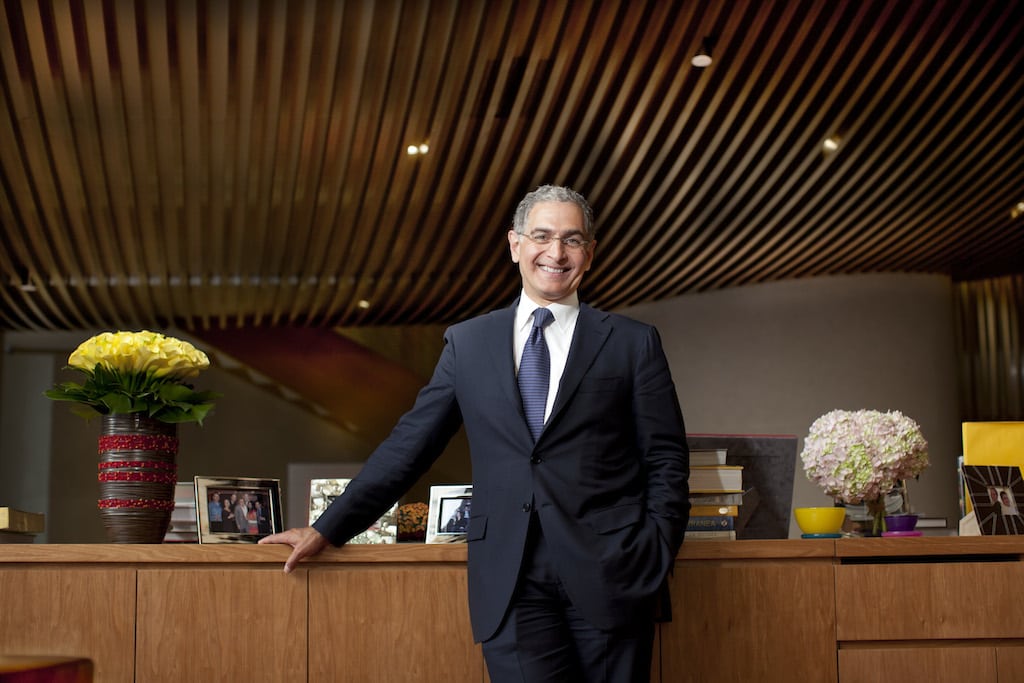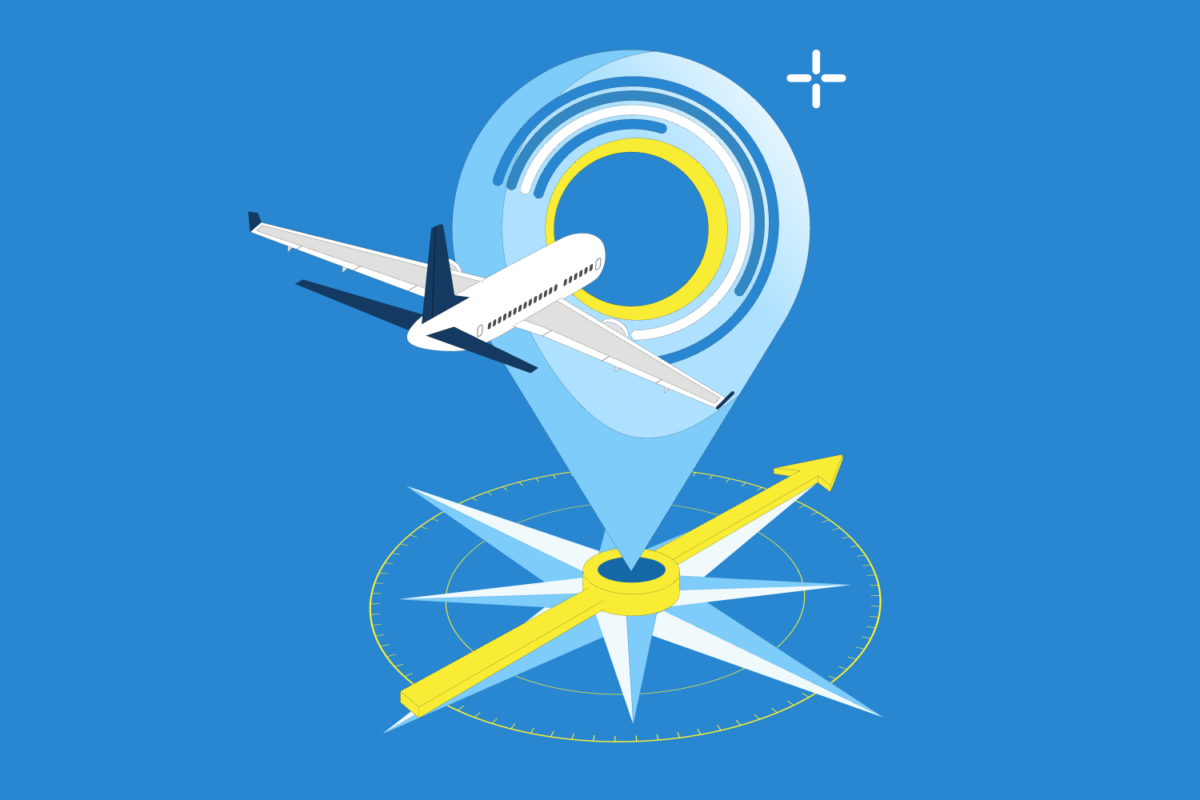Skift Global Forum 2015: Hyatt CEO on Bringing Humanity Back to Hospitality

Skift Take
Mark Hoplamazian will speak about bringing humanity back to hospitality at the Skift Global Forum on October 14 and 15 in Brooklyn, New York. See the complete list of amazing speakers and topics at this year’s event.
For hotel CEOs these days, the the phrase “high tech enabled by high touch” has become an essential part of explaining how they try to do business in the age of smartphones, iBeacons, and mobile check-in. It’s not enough just to have free Wi-Fi (which Hyatt announced in December), it’s using that technology to connect guests with the brand in ways that improve every aspect of their stay from booking to sharing details about their trip once they’ve left.
Hyatt is in the midst of building out its select-service products globally, growing its lifestyle brand Centric, and testing out the sharing economy.
Mark Hoplamazian has been CEO of Hyatt Hotels Corporation since 2006, shepherding the company through the challenges of a global financial meltdown and into the current period of global expansion. We spoke with him earlier this month about how Hyatt attempts to create a better guest experience.
Skift: With the big focus on technology these days, including mobile apps, have hotels forgotten about improving staff-to-people interactions at the property? What can you do to further humanize the guest experience?
Mark Hoplamazian: For Hyatt, it’s quite the opposite. Tech takes care of the basics so our colleagues can spend more time relating to guests and caring for them in personal ways, whether that’s swooping in with something they forgot, restaurant recommendations or helping to celebrate a special occasion. In fact, every technology initiative starts by answering, “How will we help our colleagues care for our guests?”
For example, we’re testing self-service mobile app features that allow guests who want it to do anything from ordering room service to requesting their car from valet to using a phone as a room key or to print their keys at a kiosk. As another example, a front desk agent currently needs to flip between many systems’ screens to check-in a guest. We’re testing a new, integrated interface to bring everything together in one screen — by desktop, tablet or mobile device — so our colleagues spend less time with their heads down and more time having a dialogue. Even our global learning platform is mobile, so colleagues can access training anyplace and just as they would in their normal lives.
Skift: Do the same principles apply whether it is Okinawa or Atlanta?
Hoplamazian: It’s all about empathy. The principle is the same, but the execution varies. We’re throwing out the rulebook, peeling back age-old procedures, and letting our colleagues be themselves. This means our colleagues really listen and respond by caring for guests so they can be their best. They use their judgment to do what must be done. What works in Okinawa may not work in Atlanta, and what works for one guest will not work for all. But applying the same principle of empathy for each individual in each interaction always wins.
Skift: What role does design play in providing a more personable experience?
Hoplamazian: It’s never been more important to design with empathy. This is how we design something not just useful but also something that gets at an emotional need. We continually try new things, improving on the things our guests want and moving on from what they don’t, to build powerful brands that connect with our guests. Technology can help in the process, but it is not the experience.
Here’s an example. While at a hotel in the Chicago area, I spoke with a housekeeper who told me that the housekeeping schedule made it such that she couldn’t typically help her daughter in the mornings by watching her grandchild. A new mobile-based scheduling system has since allowed housekeepers to design the schedule themselves, and this housekeeper can now have more direct control over her schedule.
Skift: Is this trend relevant for business travelers, too? Do they need more personalization at the hotel or for them is it more important to have the amenities that they need — fast Wi-Fi, meetings rooms etc. — at the property?
Hoplamazian: Business travelers are people, too! They’re some of our best relationships. Things like connectivity and meeting spaces are table stakes, and the more we know you the better we can care for you to be your best. If your flight is late, we can help you get a bite to eat after hours. Our technology can help you get straight to your room so you can jump on a conference call and get to work on the free Wi-Fi. And so on.
Skift: Hyatt recently invested in onefinestay? What do you think Hyatt can learn from onefinestay and the sharing economy? Will we see Hyatt offering onefinestay stays as an option for families or extended stays for business travelers?
Hoplamazian: We are always looking for ways to innovate the guest experience. We do this inside our own walls, like the way we’ve diversified our business by introducing new all inclusive and lifestyle brands. We also do it beyond the walls of our hotels by teaming with companies like Uber, onefinestay and Reaction Housing. We view onefinestay as adjacent to the hotel space, and we see opportunities to learn from their business and to introduce their guests to Hyatt brands in complementary ways. We’ll keep testing, working with a number of companies and making investments to care for people in new places and in new ways.
Skift: What’s the next big thing for Hyatt in terms of improving the guest experience?
Hoplamazian: The next big thing is to keep being ourselves. It’s clear that people value authentic experiences and genuine care over “stuff.” For example, our loyalty program Hyatt Gold Passport is focused on offering benefits that deliver experiential value. The program recently introduced new benefits like the ability for our most elite members to transfer their on-property perks to friends and loved ones on award stays and two annual complimentary United Club one-time passes, and we plan to continue building experiential benefits for our most loyal guests.
Get Your Ticket to the Skift Global Forum





